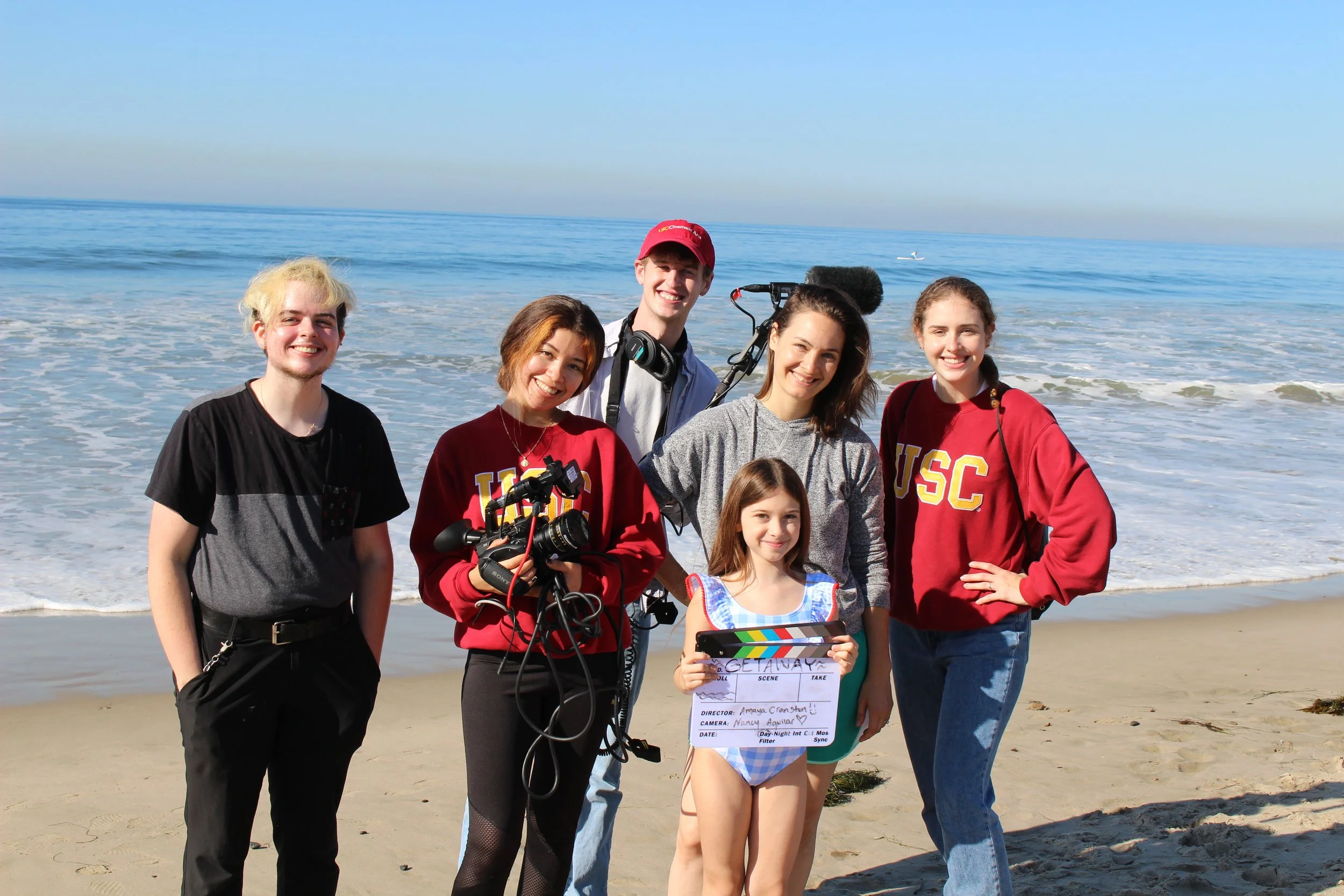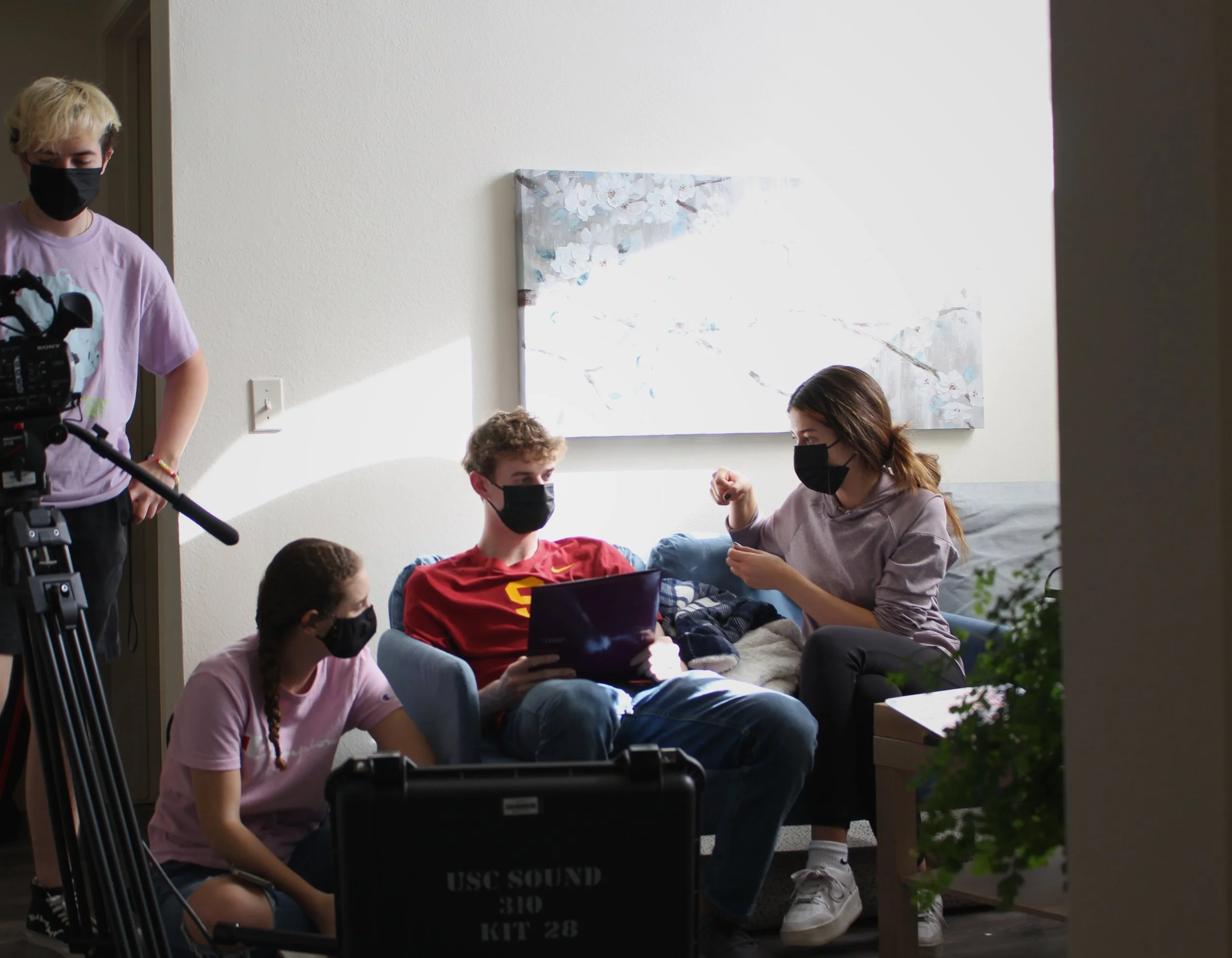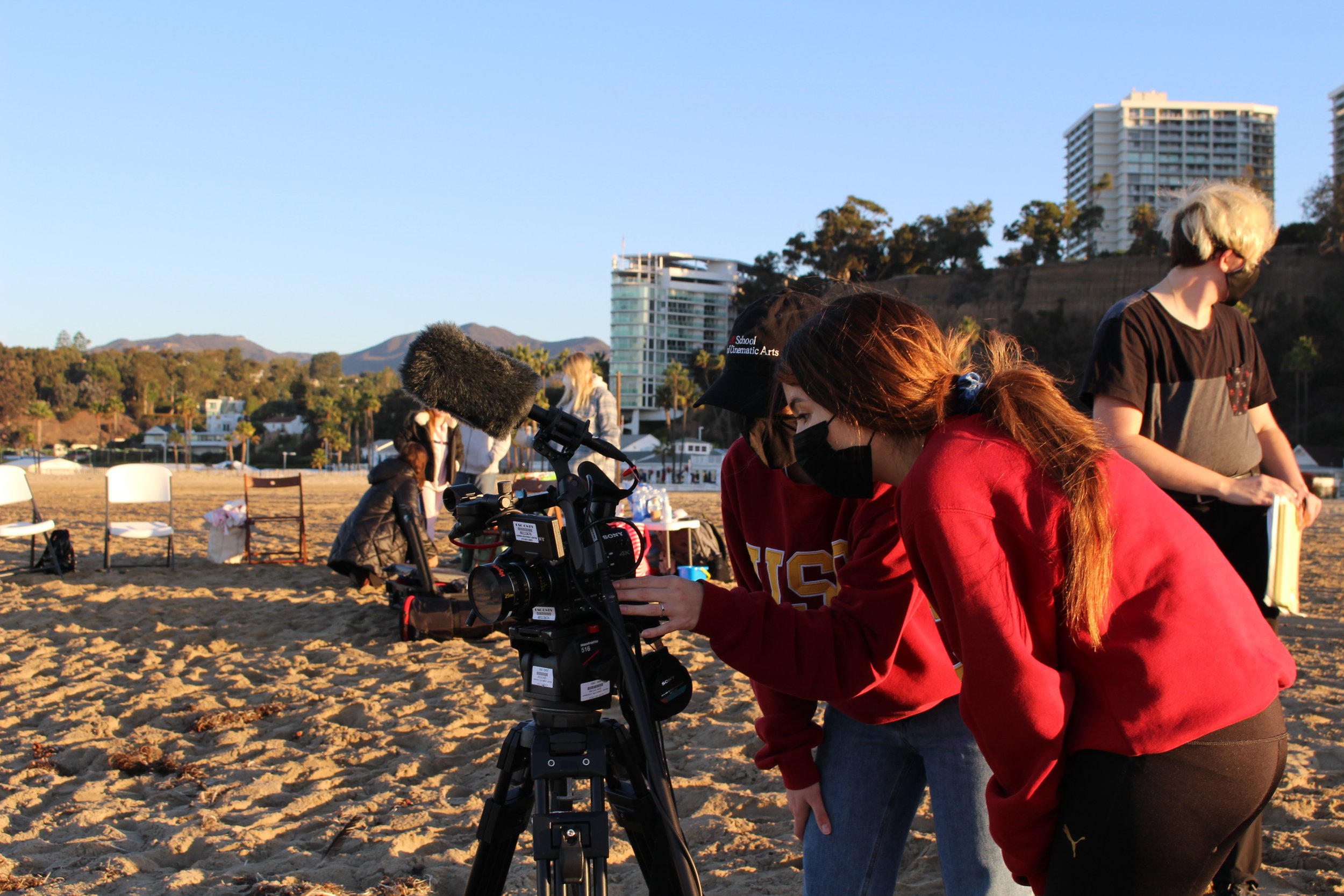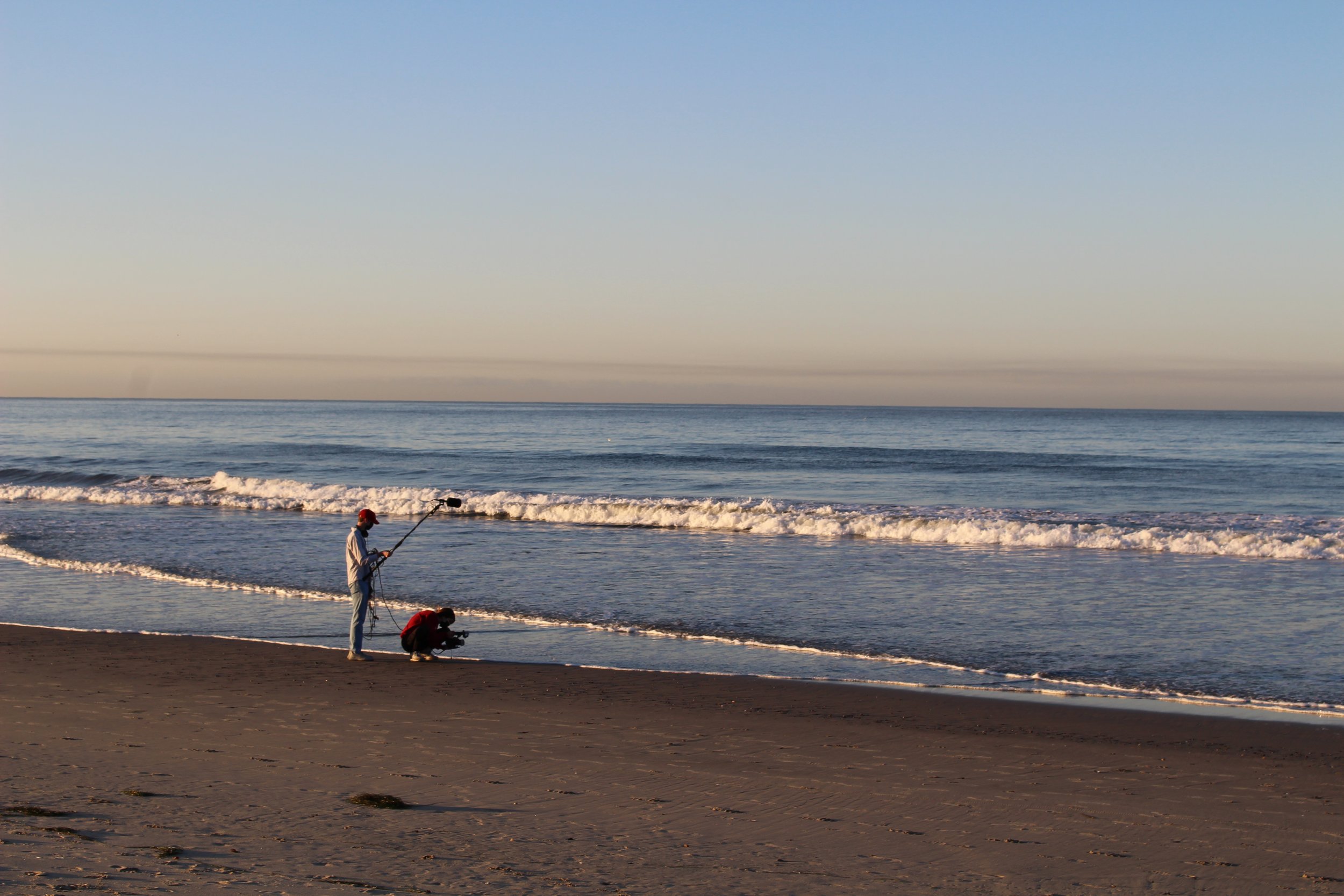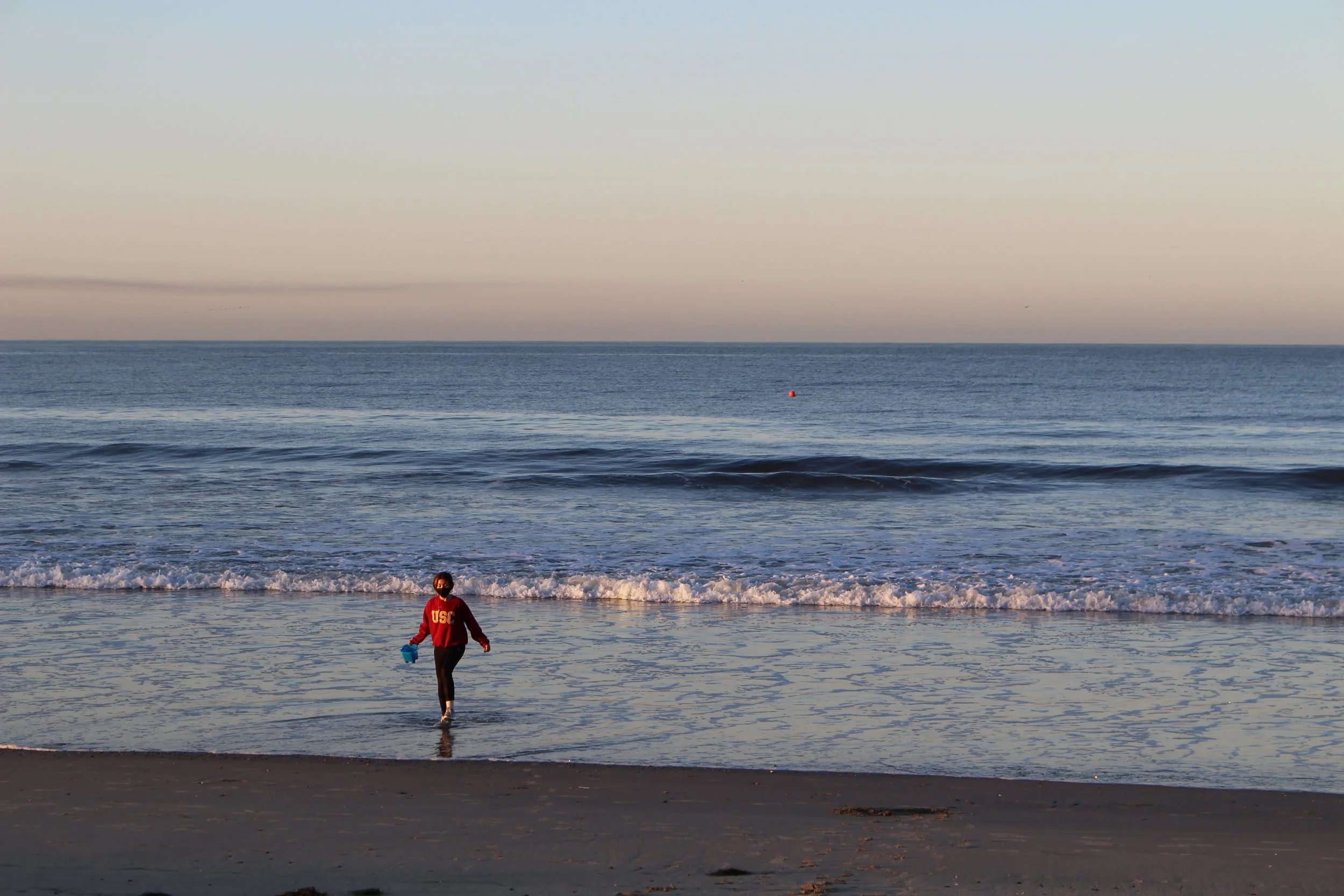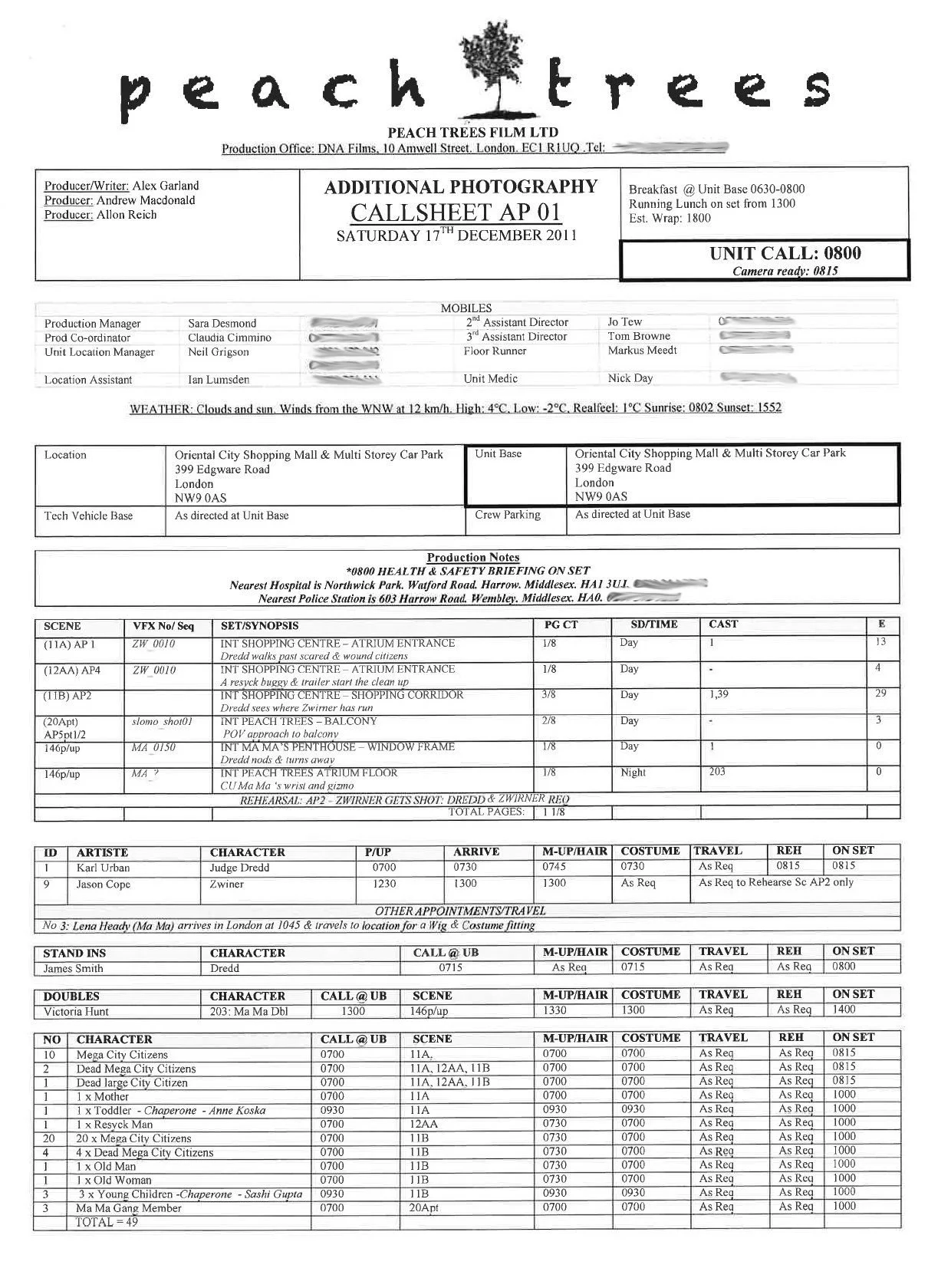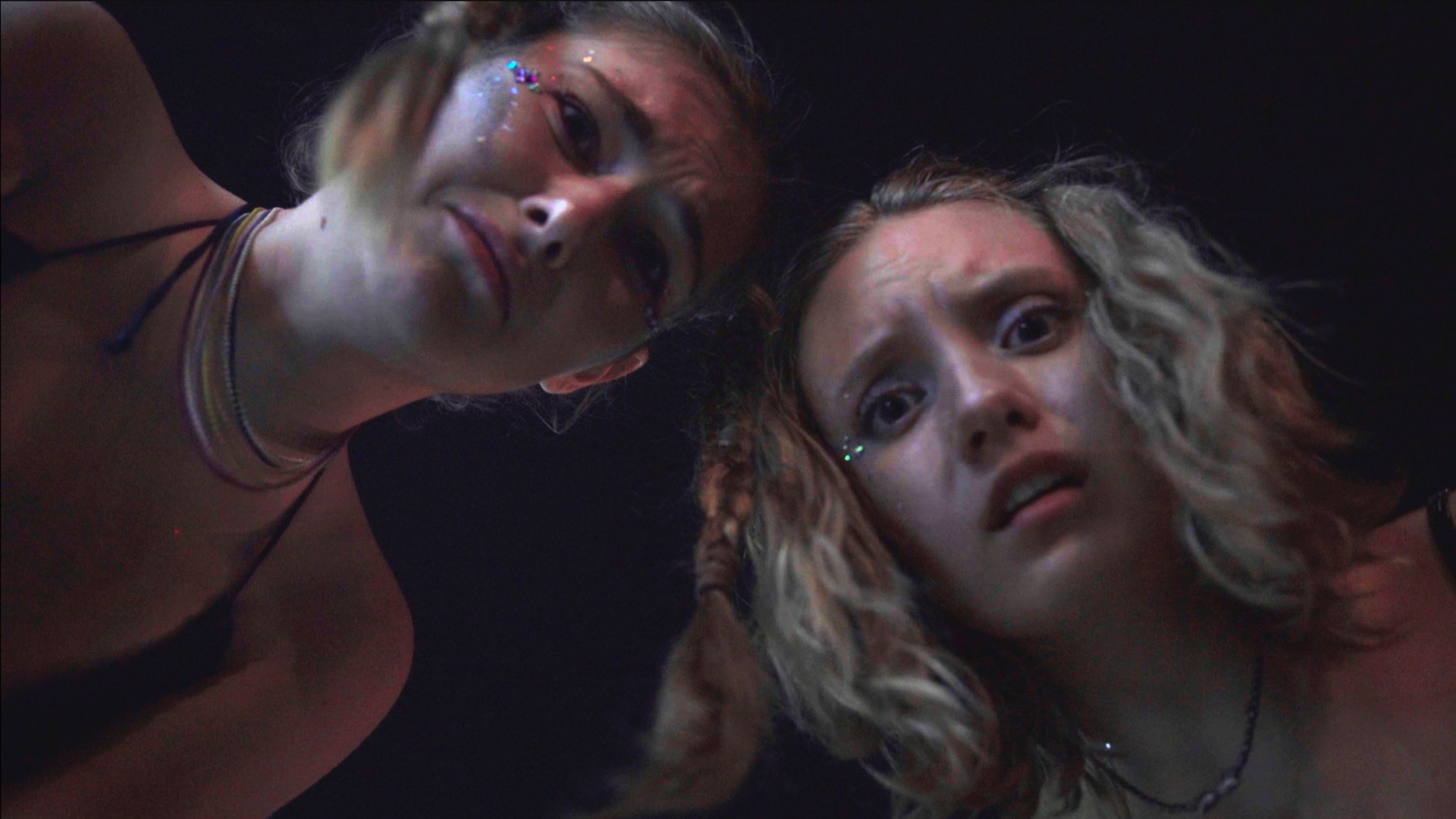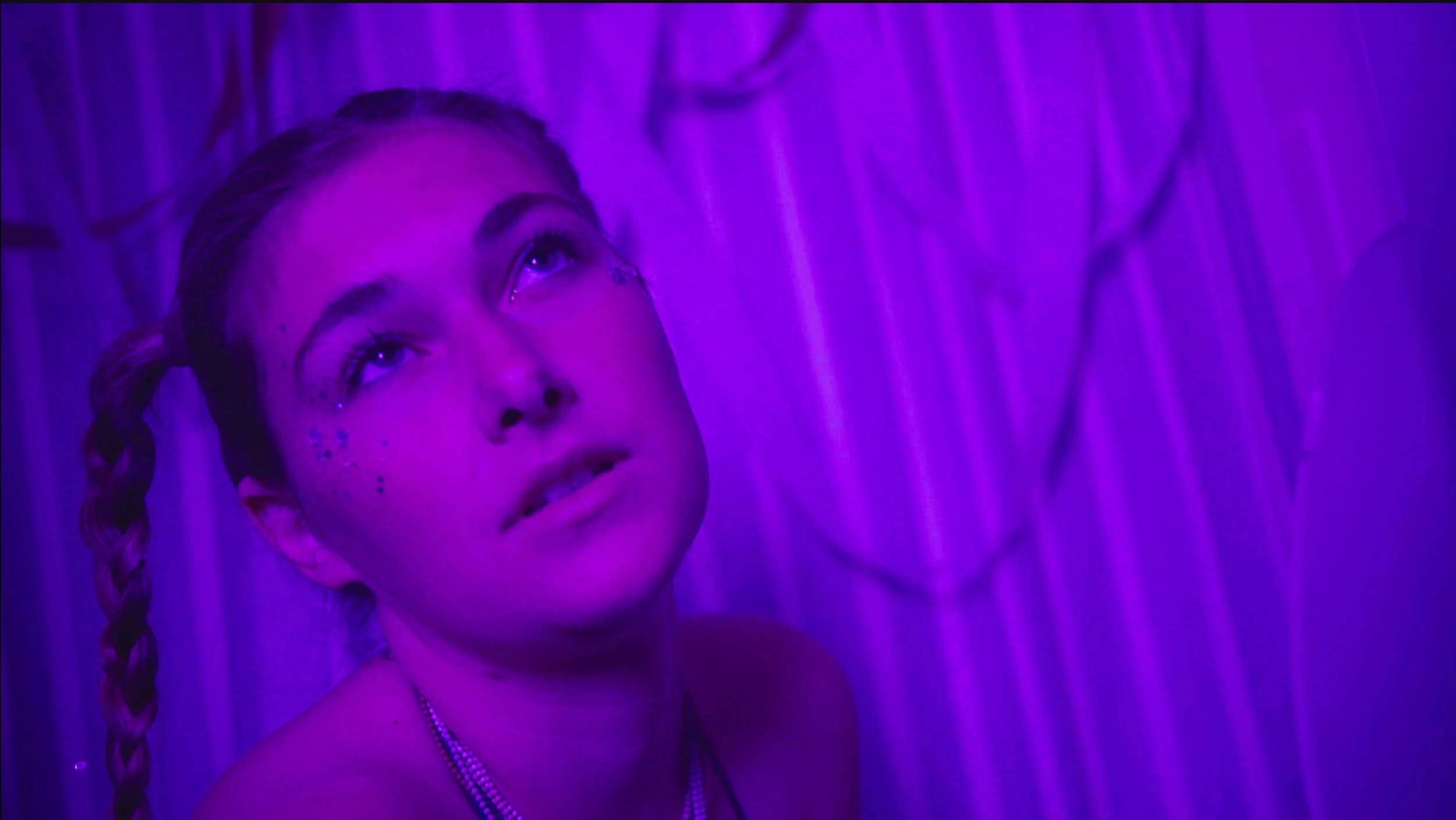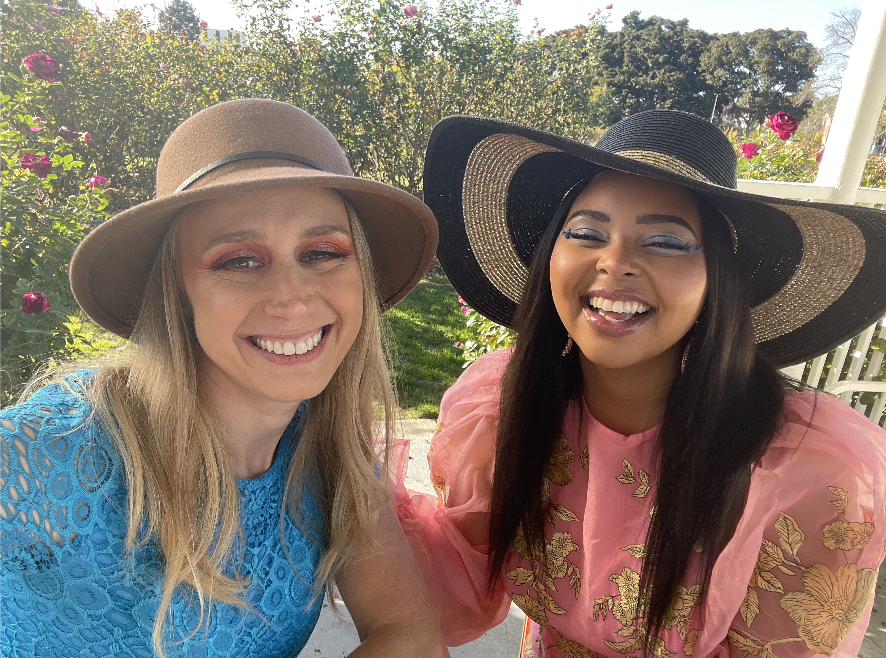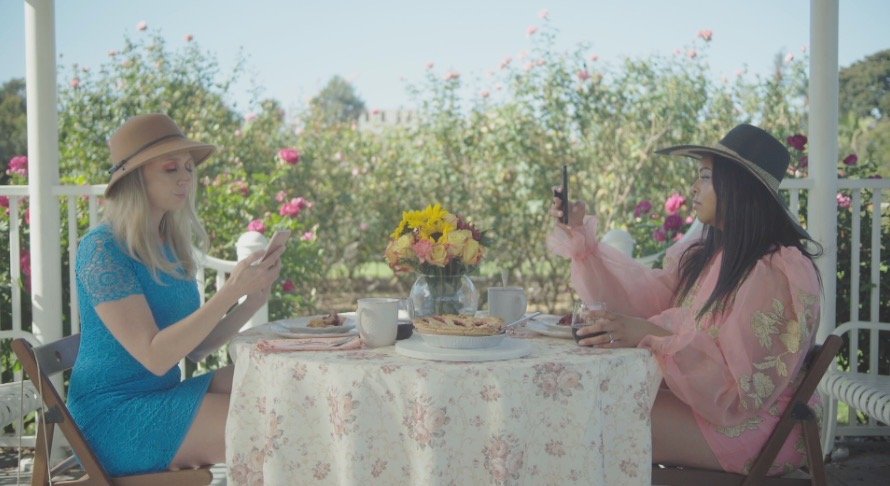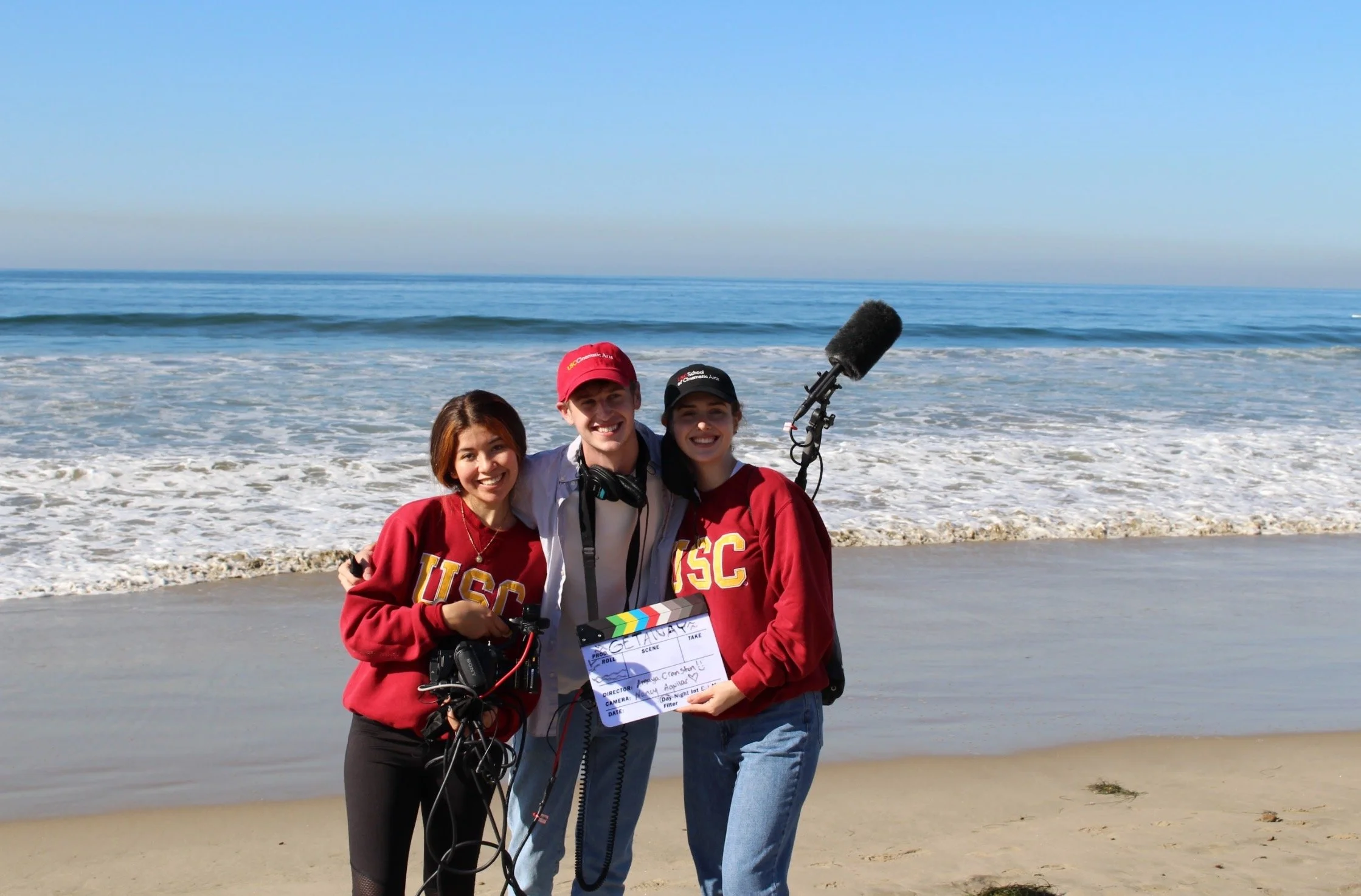Breakdown of a Day on a Film Production Set and Tips on How to Navigate It
By: Nancy Aguilar ‘22
Me and the cast and crew at Will Rogers Beach for a Junior Thesis Film Project
Preparation
Days on set are LONG. Typically 10 to 12 hours days, so you should first make sure to take care of yourself. After all, you can’t be in the right headspace to help others if you aren’t watching out for yourself first.
Make sure you wear comfortable, breathable clothes. Also, pack layers. Sets are typically hot from everyone moving around so you want to make sure you’re wearing clothes that allow you to stay active. It can also be colder in the early mornings and late nights.
Pack water and snacks! Sets do have ‘crafty’ which is a designated table that provides snacks for the crew, but you don’t want to rely on that because sometimes producers forget about allergies and getting snacks can become a mess.
In terms of work, it’s always great to read the script ahead of time! Ask your producer for it if they don’t send it to you initially. Reading the script is beneficial in so many ways. It connects you to the story and the production, it allows you to get a sense of what each scene set up will need and it can be an ice breaker or talking point on set. Oftentimes, you’re meeting new people on the cast and crew so it is always a great way to start a conversation and build a connection with the people you’re working with. I cannot stress enough how important set energy is. Everyone should be in a good mood and feeling comfortable. That’s the only way you can get great and efficient set ups and better performances from the actors.
Etiquette
Set etiquette is a very important part of the job because you want to demonstrate respect to the people that you’re working with. It can be a very divisive topic because people have different ideas about whether or not a person in a beginning position—like a production assistant—should be able to converse with the actors or with the director. I say, trust your instincts. The most important thing on any set is getting a shot and finishing within the timeframe that they have a space. Location permits are EXPENSIVE so the last thing you want to do is be distracting and unhelpful to the process. If you’re joining a crew on their first day you can assume that they have a more relaxed tone because it is the first day. However, if you’re joining on the last day you know that everyone is going to be a lot more zoned in on the work because they only have the location for that last day. If you’re ever confused about something, talk to the producer or the assistant director. It’s their job to ensure that everything runs smoothly and they know everyone on the roster so they’ll give you a run down on the vibe of the set and whether it’s one where you can more freely talk or one where you should be more focused on the work. When in doubt, stay quiet because the last thing you want to do is ruin a shot. This being said, don’t be afraid to ask questions, it demonstrates that you care about doing a good job. Never feel embarrassed or like you’re slowing the team down. Most of the time people know that you’re new and they mainly just appreciate that you’re putting in the effort.
Roles
Each role has many different responsibilities, so I’ll talk about the on-set responsibilities only.
Producer
As I’ve mentioned before, the producer is in charge of getting the cast and crew formed and acting as a point of contact for everyone. They budget and keep everyone on schedule. They’re in charge of all of the paperwork and, in smaller crews, they’re in charge of safety and other logistical concerns. They should be the first person you look out for on a set.
Director of Photography
Me (the director of photography) and the director setting up a shot. :)
The camera operator and designer of how the lights will be set up.
Director
Directs the camera position and movement (with the input of the Director of Photography) and directs the performance of the actors.
Gaffer
Chief electrician and works with the director of photography to arrange the lighting.
Grip
Is in charge of moving and arranging the camera equipment and works alongside the gaffer to execute the visions of the director and director of photography.
Me and our producer/sound designer grabbing b-roll!
1st Assistant Camera
Pulls focus for the director of photography and ensures that the footage is steadily working.
2nd Assistant Camera
Labels the slate and helps with organizing the shot list that the director made.
A Basic Set Day
First, you’ll receive a call sheet which will outline when each crew and cast member will arrive on set, including you! So be sure to look at that to know where the location is and what time you’re supposed to be there. The call sheet also gives you a recap of what the shooting schedule will look like for that day. Specifically what scenes and shots will be filmed on a certain day. This allows you to know what to expect during the day and how long the day will take.
Call Sheet Example!
Once you get on set, everyone’s first priority will be to prepare for the first shot and make sure that everything is prepped for getting the shots that are needed for that first scene.
What you are in charge of depends on your specific role but everyone’s job is to ensure that the set up for each shot is prepared on time. And this process is repeated for each shot and each subsequent scene.
Stills from our first junior thesis project!
Tips for being on set
Actor selfie <3
Don’t be late!
You never want the crew to be waiting on you or be slowed down because of you. Apart from being a bad look on your time management, it makes the entire set less efficient.
Be silent while the camera is rolling
The whole point of being on set is to capture shots, making noise during a shot ruins an entire take and the whole cast and crew has to reset. Be very mindful!
Don’t do anything that you’re not sure of—ask if you’re not sure!
The last thing you want to do is break equipment or do work that is redundant. If you’re not sure what to do to help or how to work something, always ask! Preventing mistakes is always a top priority.
Don’t be idle/be ready at all times and show enthusiasm! :)
Never look uninterested or bored, always be invested and eager to learn more! This really helps you move up the ladder and learn new skill sets that you don’t initially get from a beginning role.
More film stills!! :)
Overall, I think the most important thing is your attitude! Even if you’re lost or unsure, demonstrating that you’re willing to learn and get better will always leave a good impression on the people on set and they'd most likely want you on the next one!
My lovely film team :)
Want more from Trojans 360?
Visit Trojans 360 on Facebook & Twitter to stay up to date with more student content! You can also Ask A Trojan an anonymous question, and we’ll try to answer it in a future post. And don’t forget to follow us on Instagram!
Trojans 360 is USC’s official student-run blog. Content created by students, for students.

